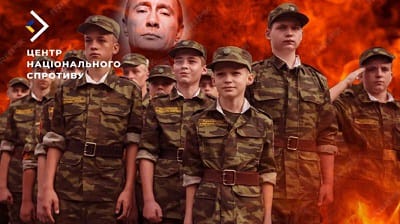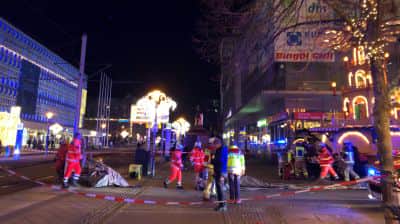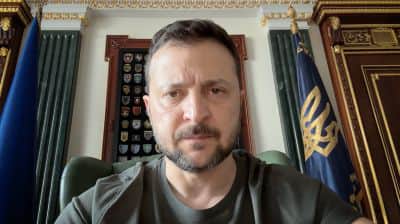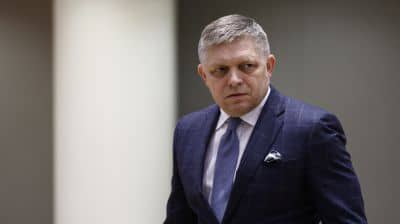Kremlin launches information campaign to downplay losing Kursk Oblast – ISW
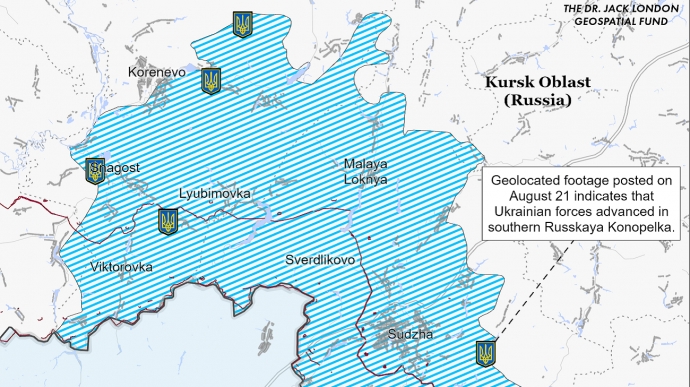
The Kremlin has launched a complicated information campaign aimed at justifying to its domestic audience why Russia prefers to hold the initiative in Ukraine’s east rather than immediately driving out Ukrainian troops from Russia’s Kursk Oblast.
Source: Institute for the Study of War(ISW)
Quote: "Russian government sources close to the Russian Presidential Administration told Russian independent outlet Meduza that the Kremlin is actively trying to condition Russian society to accept the limited Ukrainian presence in Kursk Oblast as a ‘new normal’ and downplay the significance of the incursion."
Details: Reports from Meduza’s sources suggest that the Kremlin plans to utilise propaganda to convince the Russian public that the recapture of these territories by Russian forces is inevitable following Ukraine’s eventual defeat in the east.
Sources also revealed that the Kremlin is shifting the focus of fellow Russians away from concerns in Kursk Oblast by rallying domestic efforts towards humanitarian aid for residents affected by the situation. It was also noted that the Kremlin decided against cancelling the upcoming governor elections in Kursk Oblast, set for September, to avoid causing alarm in the region.
Despite this, the Russian Central Election Commission has opted to delay local elections in the seven districts within Kursk Oblast affected by the Ukrainian advance, citing safety concerns.
Russian state-owned media are increasingly framing Kursk Oblast and its inhabitants as strong supporters of the ongoing war against Ukraine, even though they are experiencing some minor disruptions to their usual routines. Notably, Russian state television is characterising the Ukrainian incursion into Kursk Oblast as a contained operation, while emphasising Russian gains on the Pokrovsk front, which are being portrayed as significant victories.
The Kremlin’s communication strategy may be designed to buy time and create space to address the Ukrainian advance into Kursk Oblast, likely waiting until they have completed their objectives in Ukraine’s east before responding.
Insiders told Meduza that the Kremlin had been initially caught off guard and concerned by Ukraine’s incursion into Kursk Oblast. However, within a week, their anxiety had subsided as the Ukrainian forces’ progress remained distant from densely populated areas such as the city of Kursk.
Meduza further reported that officials interviewed believe the ongoing fighting in Kursk Oblast will continue at its current intensity for several months, implying that the Kremlin may not be in a rush to push Ukrainian forces out of the region and will likely maintain its focus on offensive operations in Ukraine’s east.
Quote: "Putin notably appears to be demanding that Russia defeat Ukraine’s incursion into Kursk Oblast without sacrificing the stability of his regime, deprioritising the offensive in Ukraine’s east, or firing his incompetent but loyal lieutenants.
The results of such a strategy are too early to forecast. Meduza’s sources also noted that the Kremlin also considered the need for a new mobilisation wave at the start of the incursion, but that the Russian Cabinet of Ministers and Kremlin-affiliated businessmen immediately opposed general mobilisation due to ongoing labour shortages in Russia — although it is unclear whether Kremlin even considered this argument."
To quote the ISW’s Key Takeaways on 21 August:
- The Kremlin appears to have launched an intricate messaging campaign aimed at justifying to its domestic audience why Russia is prioritising maintaining the initiative in Ukraine’s east over immediately expelling Ukrainian forces from Kursk Oblast.
- Russian leader Vladimir Putin notably appears to be demanding that Russia defeat Ukraine’s incursion into Kursk Oblast without sacrificing the stability of his regime, deprioritising the offensive in Ukraine’s east, or firing his incompetent but loyal lieutenants. The results of such a strategy are too early to forecast.
- Ukrainian forces continued offensive operations throughout the Kursk Oblast salient on 21 August and have made additional marginal advances.
- Putin visited the Republic of Chechnya for the first time in 13 years on 20 August, likely in an effort to shift domestic focus away from the Ukrainian incursion into Kursk Oblast and posture normalcy and stability.
- Recent US intelligence assessments highlight Ukraine's efforts to develop alternative and asymmetric capabilities in the face of Russian manpower and materiel advantages, as well as Ukraine's continued dependence on Western security assistance.
- Ukraine continues efforts to attrit Russia's air defence and aircraft capabilities.
- Russian authorities may have attempted to block Telegram and other non-Russian internet communications services on 21 August.
- The Russian government is reportedly supporting a bill that would allow Russian authorities to draw up administrative protocols against Russian citizens who violate Russian law while living abroad.
- Russian leader Vladimir Putin and People's Republic of China (PRC) Premier Li Qiang discussed deepening bilateral economic and trade relations in Moscow on 21 August.
- Russian forces recently advanced southeast of Pokrovsk, southwest of the city of Donetsk, and northeast of Robotyne.
- Russian occupation authorities continue to create Cossack organisations in occupied Ukraine, likely to build out Russia's military reserves and law enforcement bodies in occupied Ukraine.
Support UP or become our patron!
